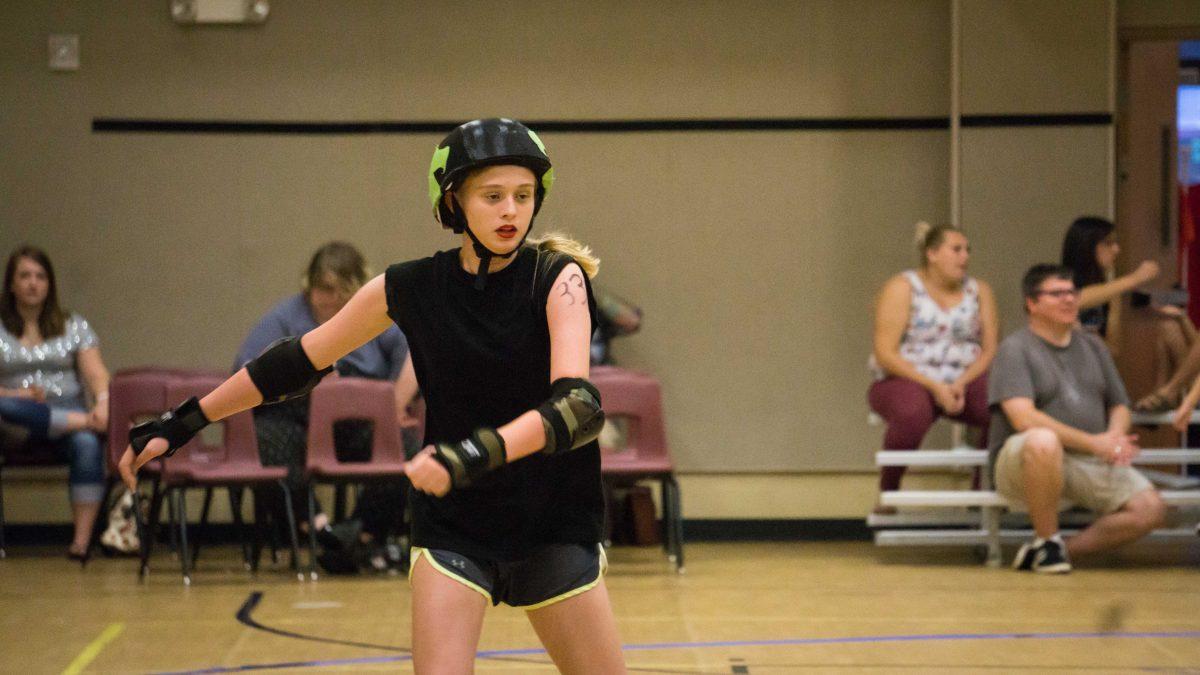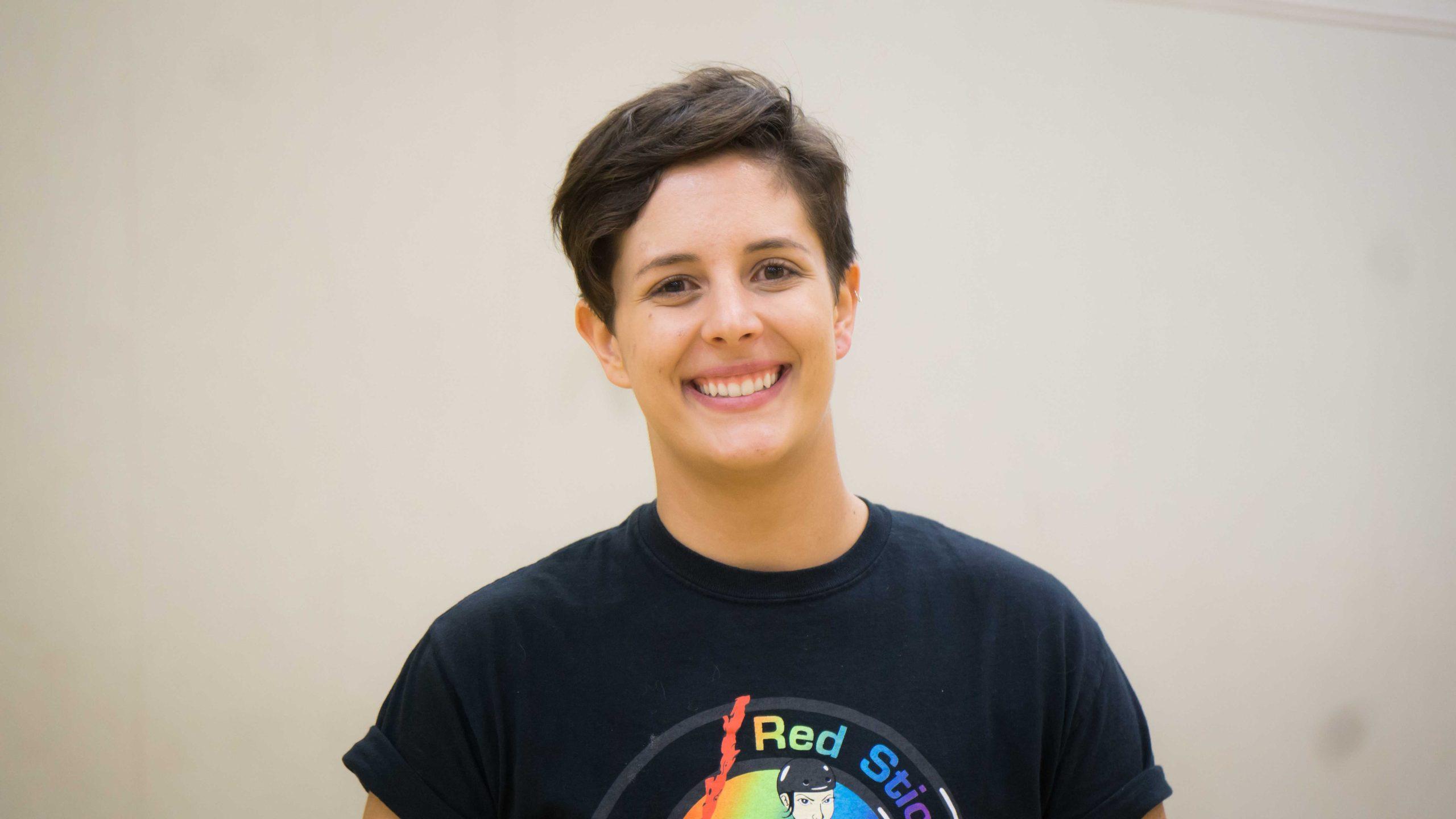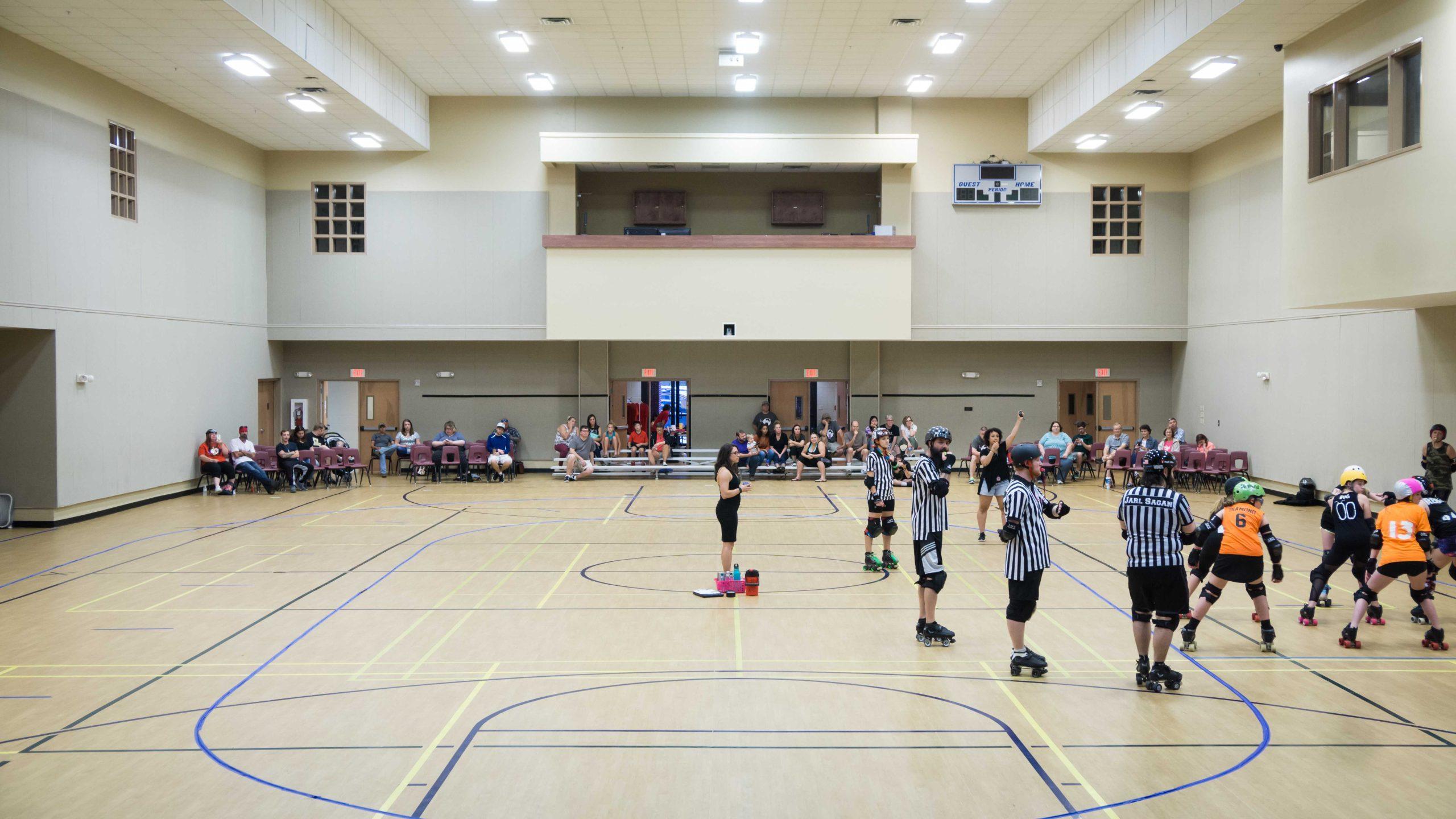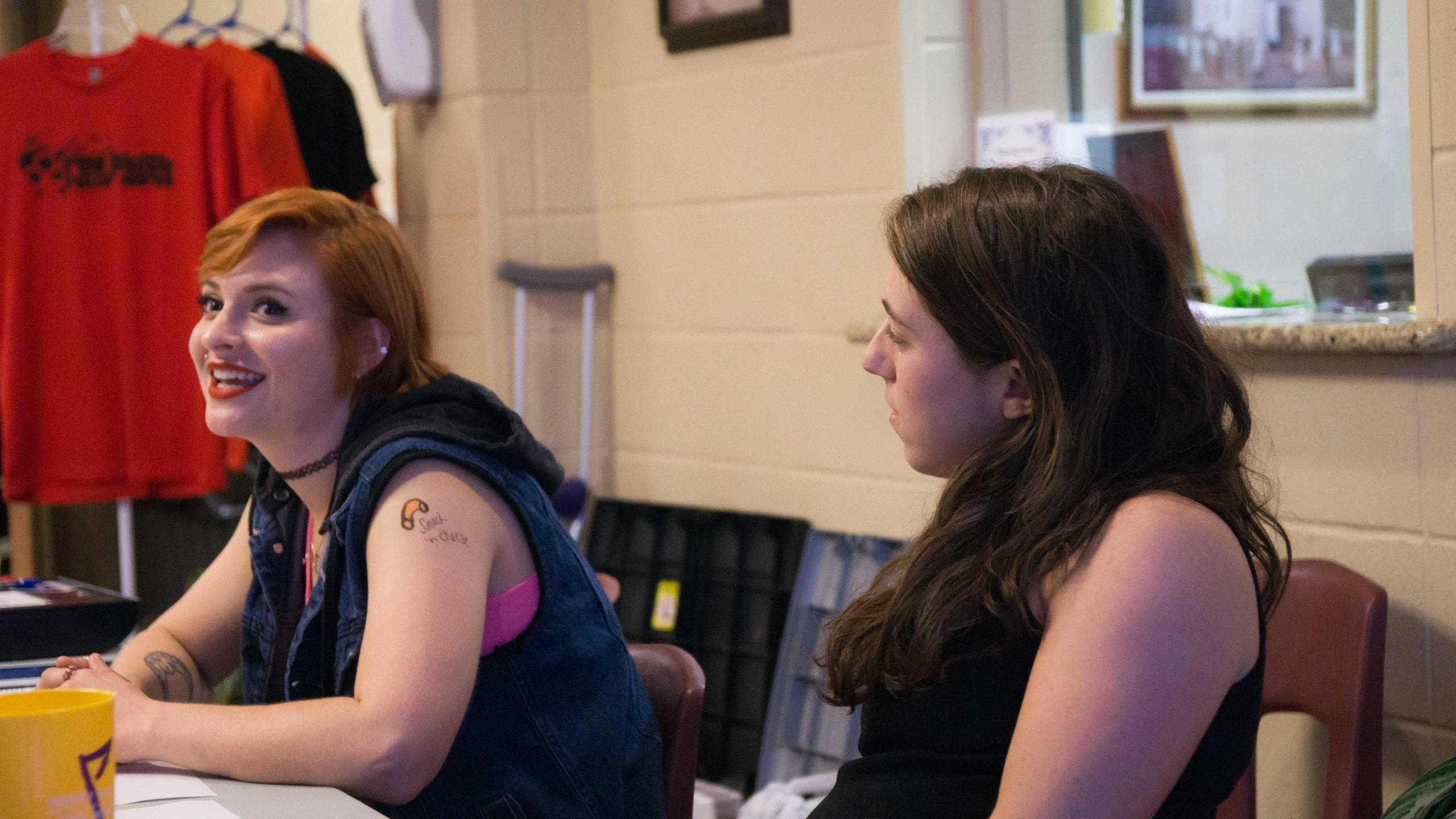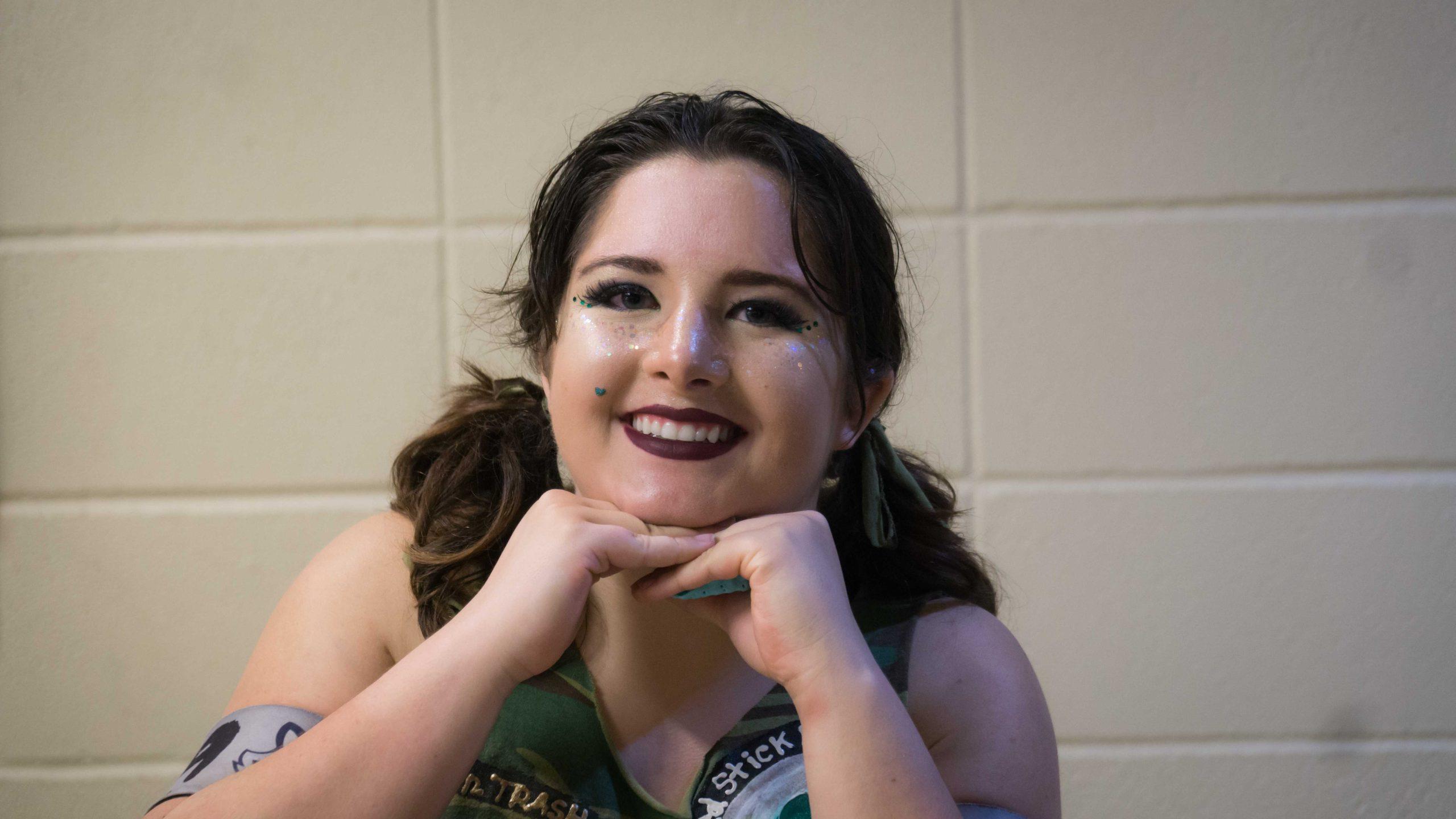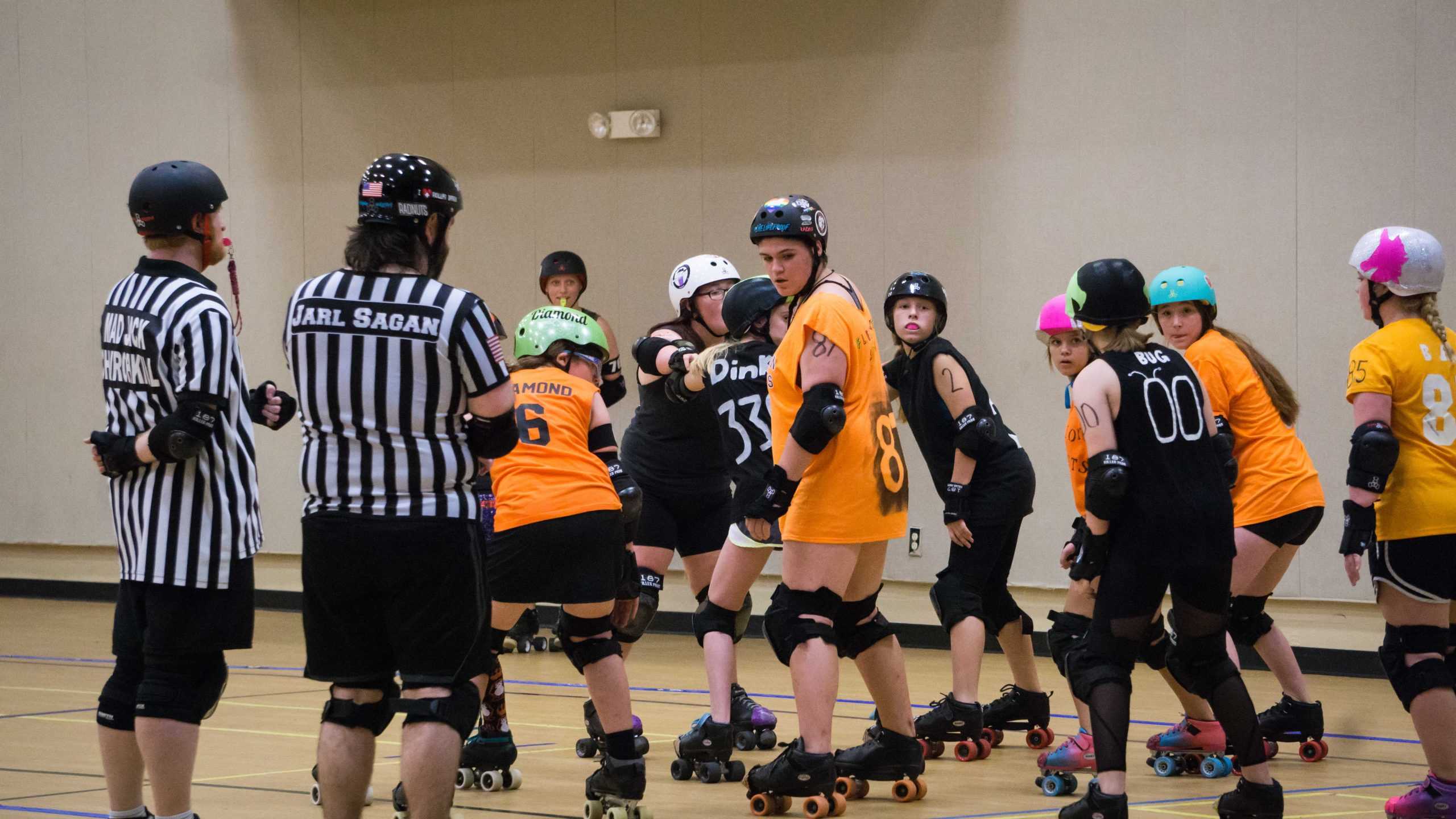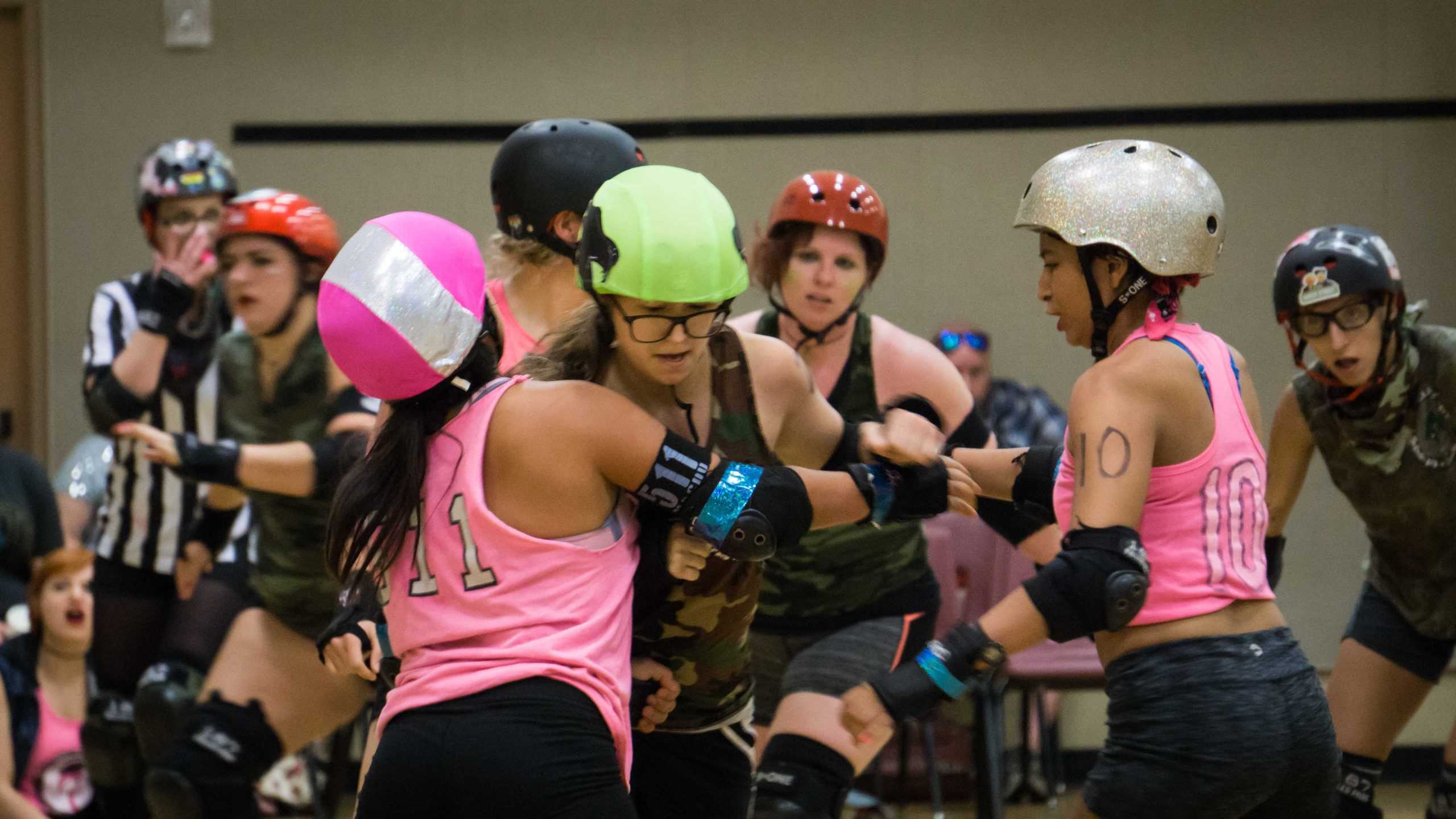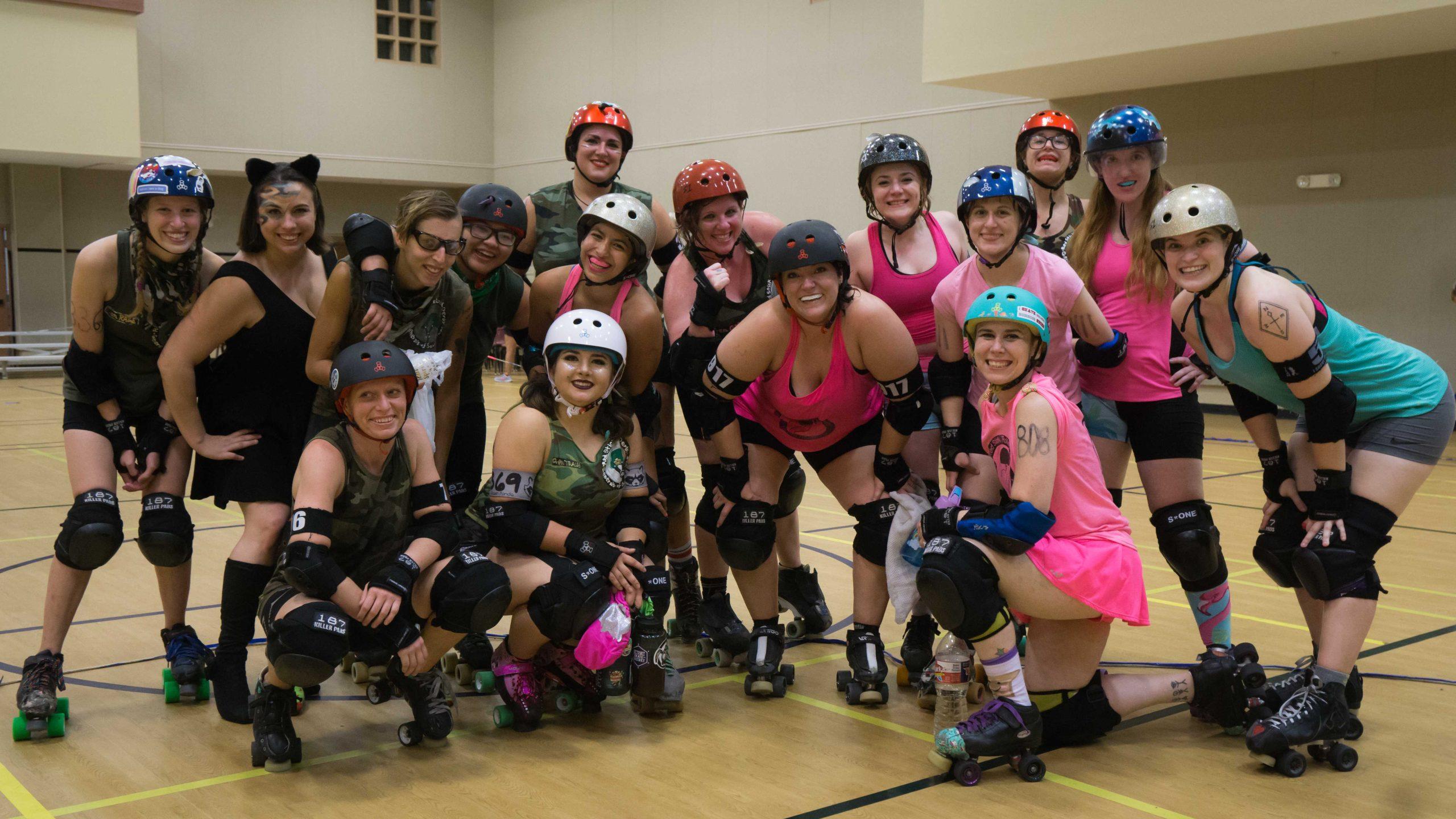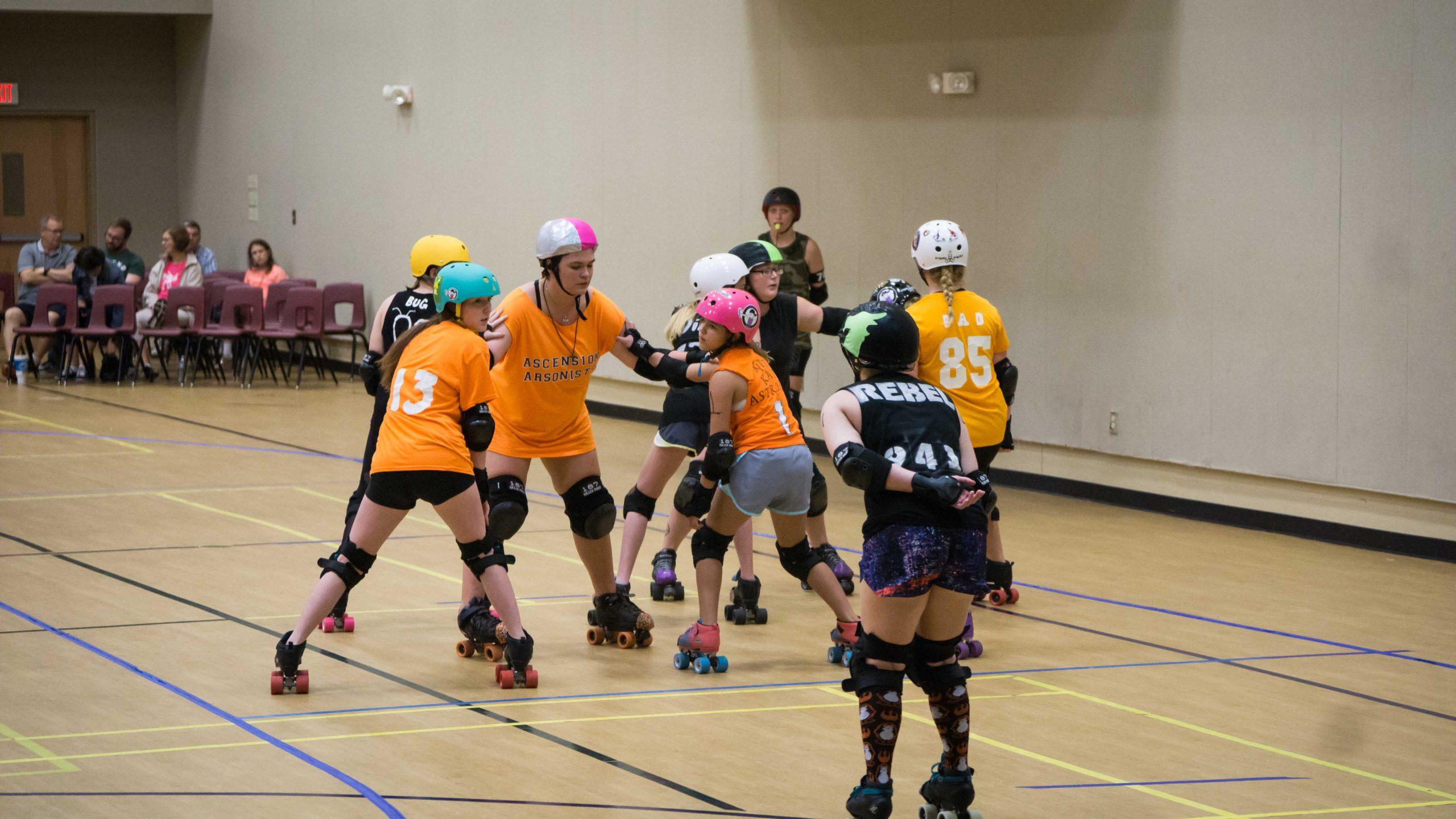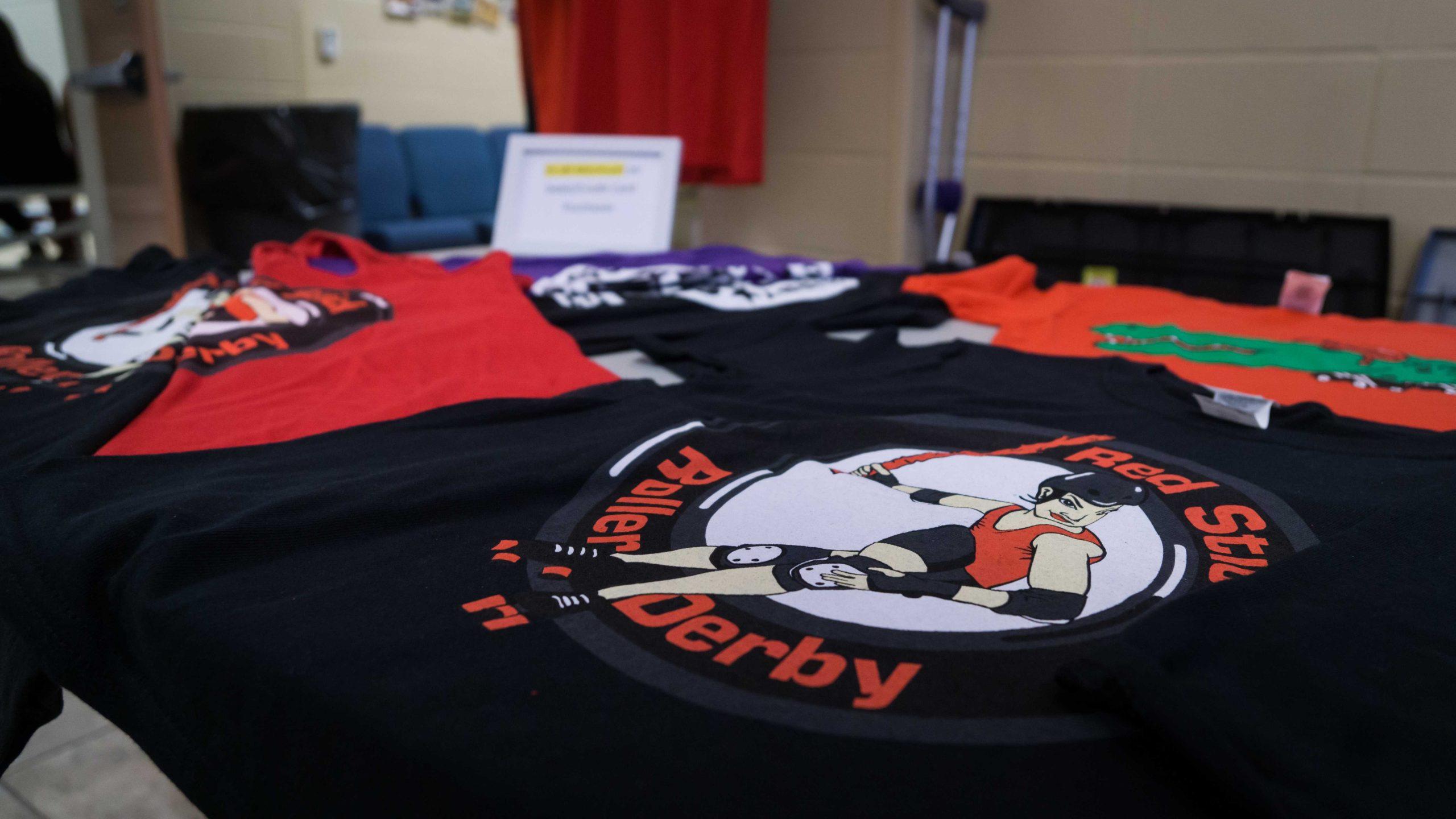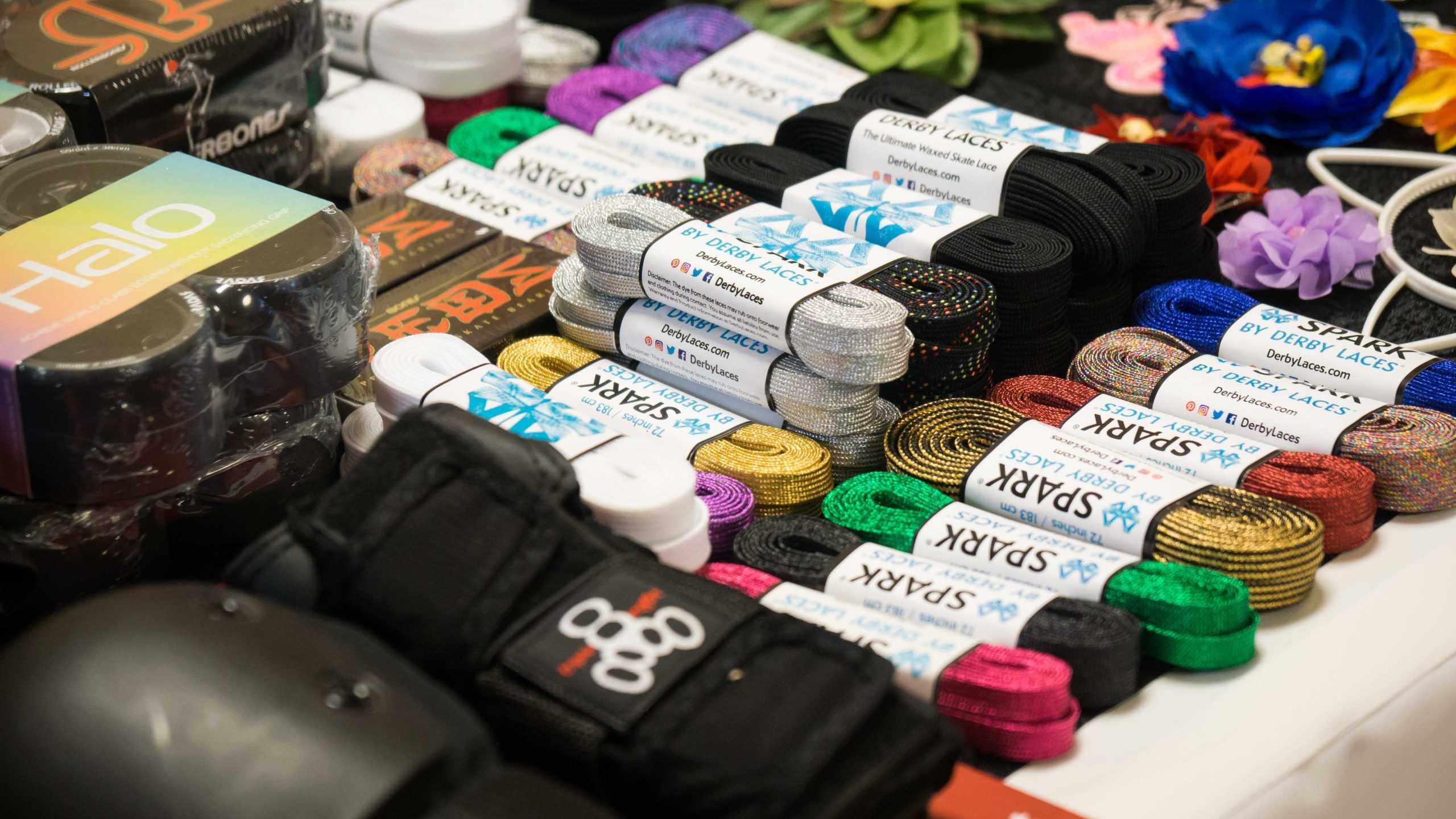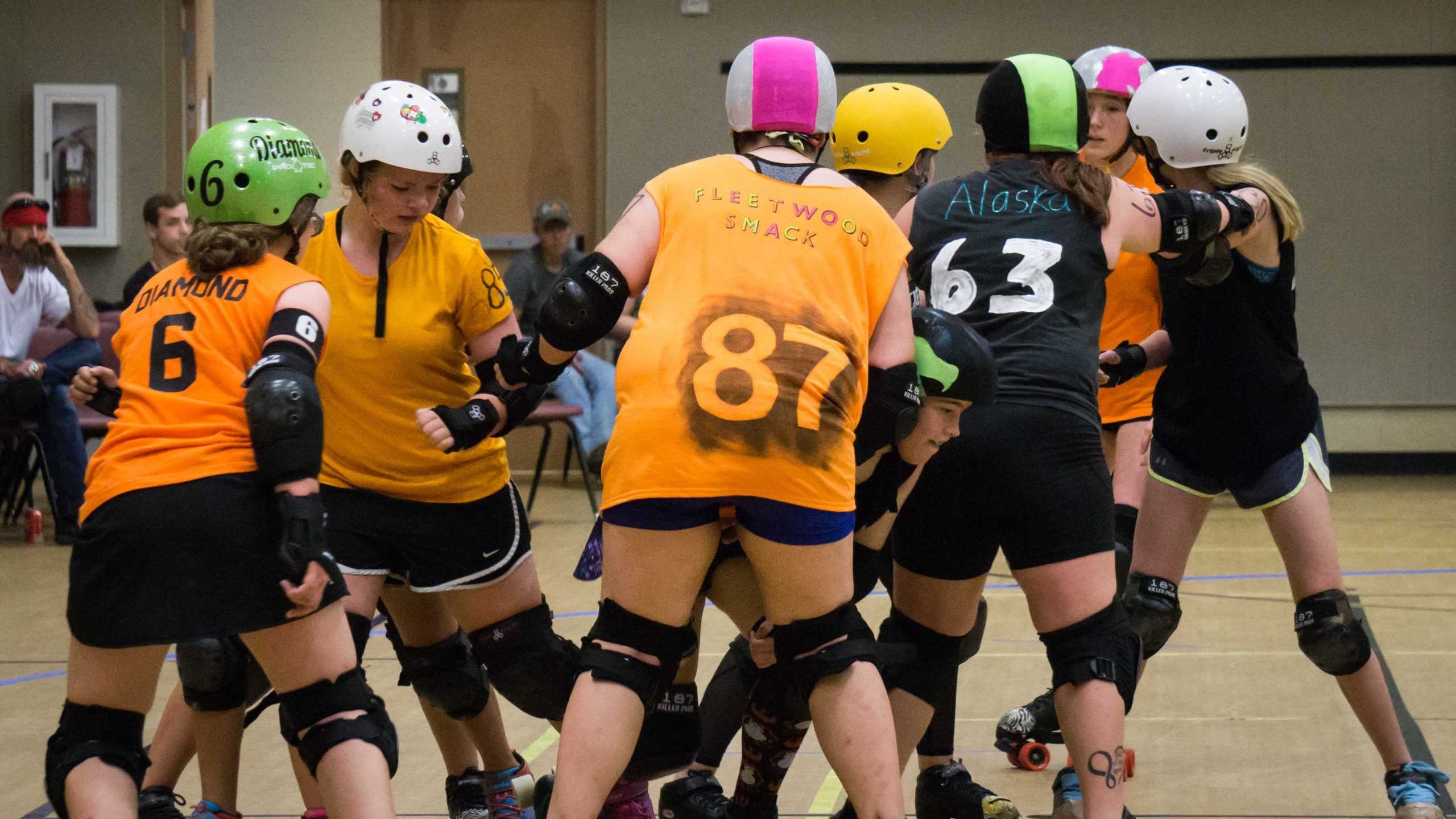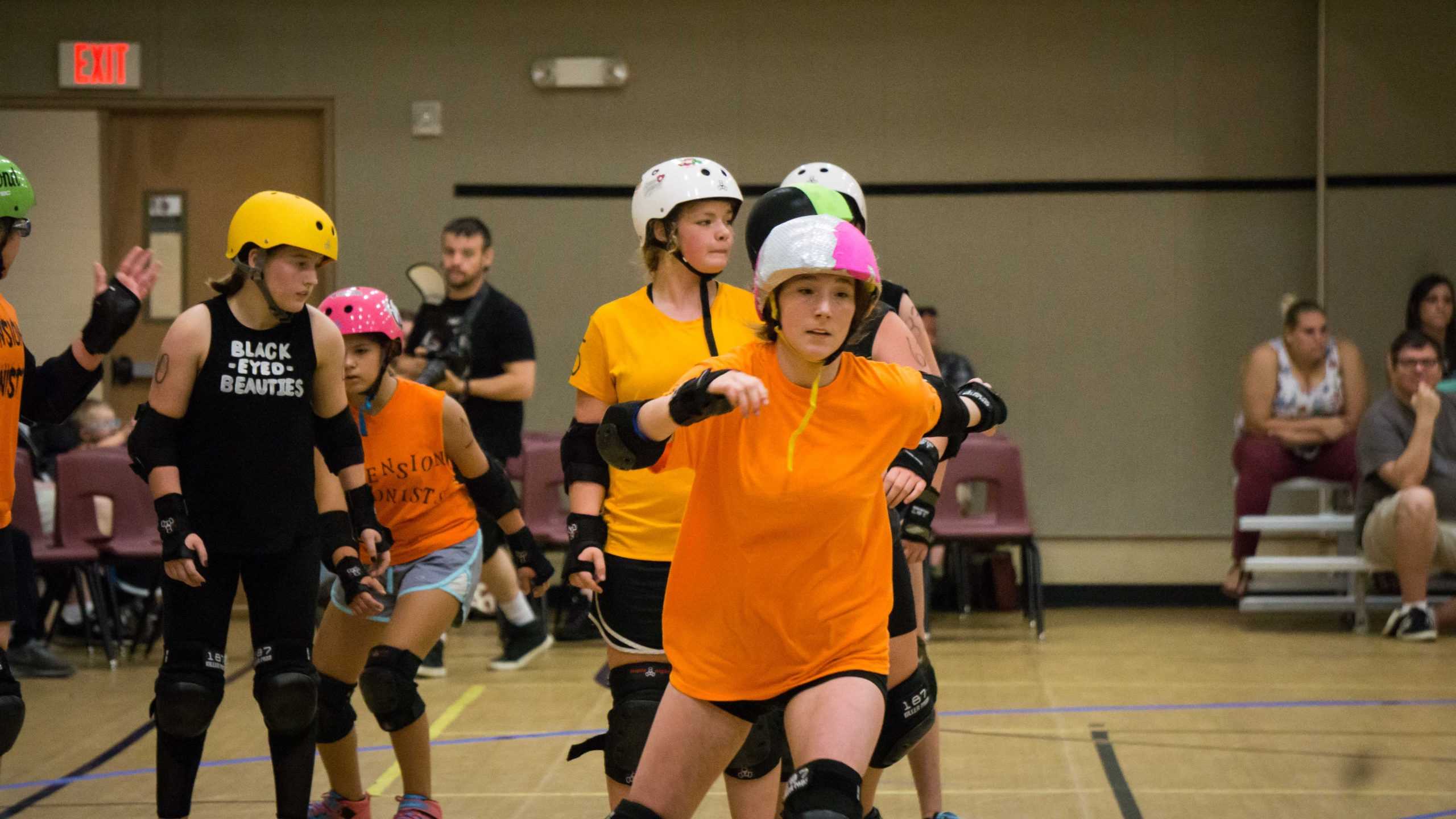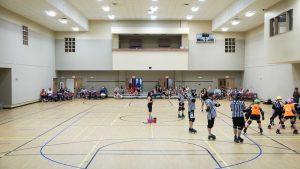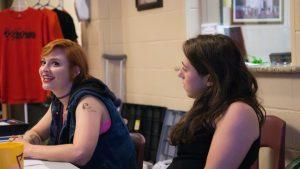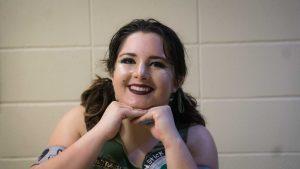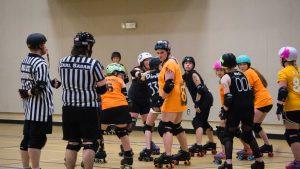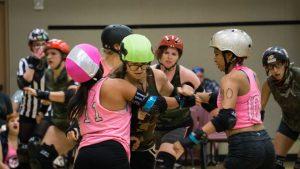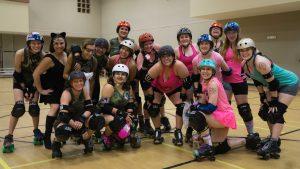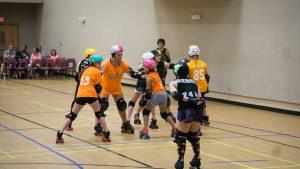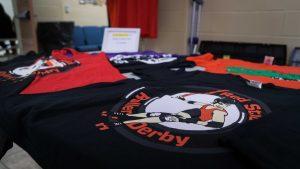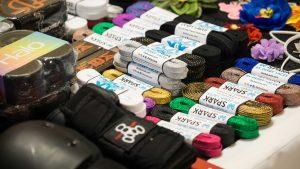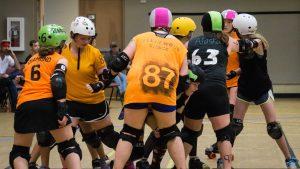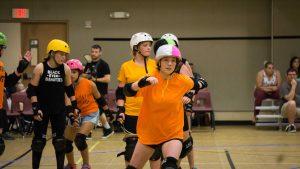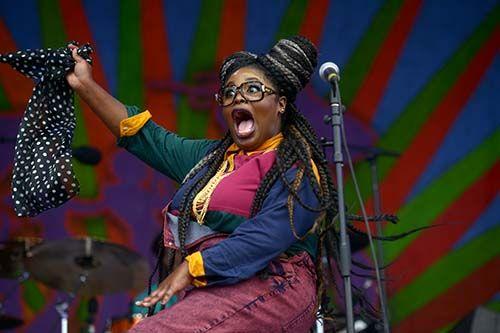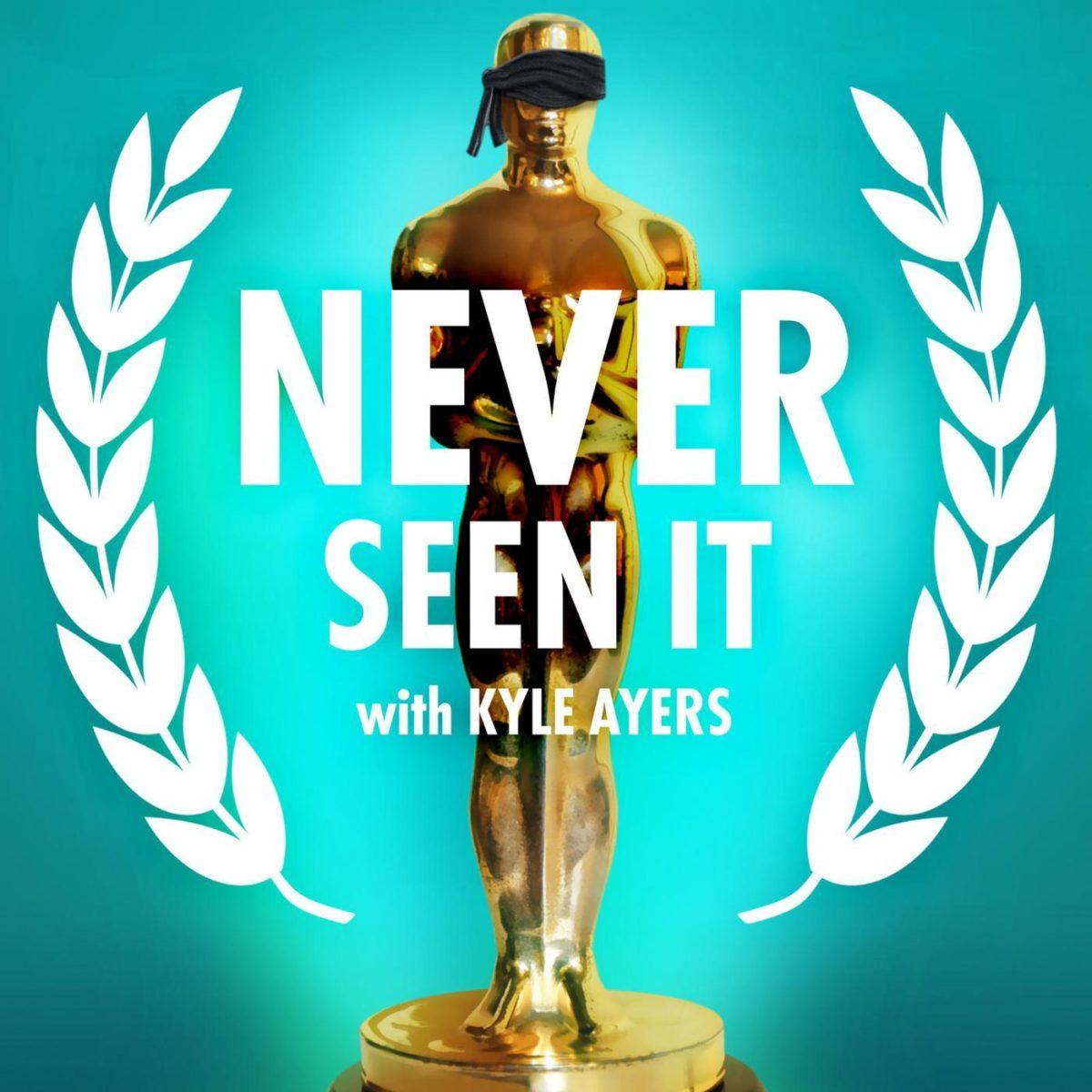When you think of roller derby, images of fishnet stockings, tutus and glitter may come to mind — what you may not imagine is that a once glitzed-out, niche sport now exemplifies athleticism and community.
Sports impact an athlete’s life in more ways than just the hours they spend practicing or competing with a team. But for many of the women who make up Red Stick Roller Derby, the camaraderie extends beyond the limits of an everyday sport — derby provides a kind of empowerment you can’t find elsewhere.
Founded in 2007, Red Stick Roller Derby is the first all-women, full-contact, flat track roller derby league in Baton Rouge. Within the league, there are three adult teams named after local neighborhoods: the Spanish Town Flamingos, and Mid City Mafia. The league is also home to the Red Stick Rascals, a junior team where girls ages 7 to 17 can develop skills before they get to the full-contact adult teams.
Women of all ages, body types and backgrounds can join the derby world no matter their experience with roller skating. Many of the women begin their career in derby as novices and join because they are drawn to the welcoming atmosphere, says league member Elisabeth “E-Rex” Mourot.
“It’s not just the sport itself,” Mourot says. “It really is the community of women — you will not find a community of such diverse, supporting women where you have 50-plus people you can call any time of the day and ask for help.”
Mourot was first introduced to derby at Red Stick’s “fresh meat” class, where women can check out the league and learn the basics of roller derby. Mourot says she didn’t know how to skate at the time, but over the course of three months, coaches taught her everything she needed to know about skating, game play and strategy. Mourot, like all league players, chose her “derby name” after training — E-Rex, for her love of “Jurassic Park.”
After Mourot graduated derby training, she joined the league as a player and has been involved ever since. Even after dislocating her kneecap in January, she stayed to help coach the junior team and fresh meat classes. In addition to the supportive community, one reason for her continued involvement is the large number of LGBTQ women in the league, she says.
“Roller derby’s LGBTQ community is massive — like, it’s probably the most unique, most accepting [group] you will find in any other sport,” Mourot says. “I don’t want to throw a percentage out there, but a large percentage of the roller derby community is LGBTQ, queer, gender fluid or just in the community.”
Finding a tight-knit group of LGBTQ women can be difficult, Mourot says, so discovering such a community in Red Stick is an irreplaceable resource.
“It’s so cool, especially in the South where you can’t go out and meet people like this unless you join an organization like Spectrum at LSU or something like that,” Mourot says. “But to come here and have a sport where you’re working out and meeting new people just to feel totally accepted in who you are is just amazing.”
League member Alyssa “Guacarolly” Fitzsimmons says she also joined derby in hopes of settling into a home within the LGBTQ community. Looking for other queer women was not about finding someone to date, but rather about meeting people who live a shared experience, she says.
Fitzsimmons found the community she was looking for and fell in love with the league and the sport itself. Above everything else, derby teaches her to live a fearless life both on and off the track, she says.
“It just really drives you to be like, ‘if I can do this one really cool, hard thing, I can really do whatever I want,’” Fitzsimmons says.
What connects women in Red Stick is ultimately their passion for the sport, no matter their sexuality or background, Fitzsimmons says. Though roller derby has a thriving LGBTQ community, women from all walks of life are connected to the sport. Women in the league are teachers, mothers and everything in between.
Anna “Trash Panda” Lacy, who is an elementary school art teacher, league member and coach for the junior team, says roller derby allows her to serve as a role model for the girls she mentors.
“We’re trying to encourage [the junior players] to be confident in their bodies, as well as realizing that it’s more important to be strong than it is to be skinny,” Lacy says. “We’ve had girls that started out and they’re like, ‘I want to do this because it’s going to make me really thin.’ And then about a week into it, they’re like, ‘oh I like playing this because look at how strong I am and look at these muscles that haven’t been there before.’”
Lacy says her work in the derby world shows girls, even outside of the league, they can be just as strong as their male peers.
“It’s pretty fun because even the kids who don’t play are able to see that if the art teacher can play, [they] can play,” Lacy says. “Girls don’t have to just be cheerleaders — they can be strong, too. They can get out there, and they can play the same things the boys are playing.”
Lacy is not the only derby woman dedicated to setting a positive example for younger generations. When league member Cynthia “Original Cyn” Sanders decided to have a baby in the middle of her derby career, she chose to merge both aspects of her life.
Sanders continued to skate — not play — for eight months of her pregnancy. Now, her son is 2 years old, and she continues to compete in derby as she balances the sport on top of having a family and working two jobs.
“It’s a constant juggle, I think,” Sanders says. “Don’t let yourself say, ‘I can’t do it because I’m a mom.’ I struggle every day wondering if I should be spending more time with [my son], but he’s given no signs that he’s missing me. So until he does that I’m just going to keep going.”
Sanders doesn’t know what her life would look like without derby. Thoughts of what comes next after derby will cross her mind, usually during bouts of exhaustion, but she says she will keep competing because it shows her son a real-life example of a strong woman.
“When my kid sees a picture of a derby girl, he says ‘mommy,’ and that’s pretty cool,” Sanders says. “We just had an assignment for his day care where he had to do things that start with the letter A. We did ‘athlete,’ and it was a picture of a derby girl. He didn’t say ‘athlete’ — he would only say ‘mommy,’ and to me, that’s what makes it. I’m going to keep doing it forever.”
Red Stick Roller Derby empowers, connects women of all backgrounds
By Lynne Bunch
October 28, 2018
Red Stick Roller Derby practices at the Mount Pilgrim Family Life Center.



